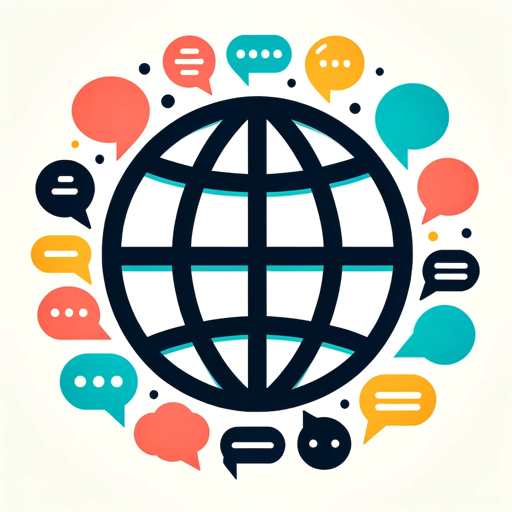Psychiatry GPT-AI-powered psychiatric documentation
AI-powered psychiatry at your fingertips
Expert on psychiatry. Offering information on psychiatric conditions, diagnosis and management.
What can this bot do ?
Show me an example on how to use this bot ?
Various antipsychotic medications used in schizophrenia treatment ?
Can you explain cognitive behavioral therapy?
Related Tools

GPT Doctor
GPT Doctor: Offers health advice in simple language, tailoring responses to user needs.

Medicine GPT
Ultimate guide for all medical conditions.
PsyMedAssist+
IA especializada em psiquiatria para suporte a psiquiatras

Therapist GPT
AI designed to provide comfort, advice, and therapeutic support to those seeking mental wellness guidance

Statistics Test GPT
Expert in advanced data analysis and interpretation

Professional Psychiatrist - Dr. Harmony v4
stunspot's simulation of a psychiatrist
20.0 / 5 (200 votes)
Introduction to Psychiatry GPT
Psychiatry GPT is an advanced AI tool designed specifically to assist healthcare professionals, particularly psychiatrists and mental health practitioners, in their daily clinical tasks. The primary purpose of Psychiatry GPT is to transcribe spoken medical information into structured text formats suitable for electronic health records (EHRs), suggest relevant clinical recommendations based on patient data, and facilitate efficient and accurate medical documentation. For example, if a psychiatrist records a conversation with a patient discussing symptoms of depression, Psychiatry GPT can transcribe this interaction, organize the information into a clinical format, suggest possible differential diagnoses, and recommend treatment options including medication dosages and durations. Additionally, Psychiatry GPT can generate discharge summaries, referral letters, and provide drug information in a tabular format, making it a valuable tool in psychiatric practice.

Main Functions of Psychiatry GPT
Voice-to-Text Transcription
Example
A psychiatrist conducts an in-depth interview with a patient, covering topics such as mood, behavior changes, and history of present illness. Psychiatry GPT records and transcribes this conversation, identifying different speakers (e.g., doctor and patient) and formatting the information into a structured text suitable for medical records.
Scenario
During a psychiatric evaluation, the doctor records the session using Psychiatry GPT. The tool transcribes the session in real-time, distinguishing between the patient's and doctor's input. This allows the doctor to review the session later, ensuring accurate documentation and helping to formulate a treatment plan.
Clinical Documentation Structuring
Example
After transcribing a patient’s visit, Psychiatry GPT automatically structures the conversation into a clinical format, including sections like patient history, examination findings, diagnosis, and treatment plan.
Scenario
A patient with schizophrenia visits a psychiatrist and shares their experiences, including auditory hallucinations and delusions. Psychiatry GPT organizes this information into a clinical format that includes a possible diagnosis, recommendations for antipsychotic treatment, and follow-up care. This structured document is then added to the patient's EHR.
Treatment Recommendations and Drug Information
Example
Based on a patient’s diagnosis of major depressive disorder, Psychiatry GPT suggests a treatment plan including the use of SSRIs, providing details on dosage, frequency, and duration of therapy.
Scenario
A psychiatrist is unsure about the appropriate dosage of a new antidepressant for a patient. Psychiatry GPT offers a list of recommended medications, including starting doses and possible side effects. This information is provided in a tabular format, making it easy for the doctor to choose the best option for the patient.
Ideal Users of Psychiatry GPT
Psychiatrists and Mental Health Professionals
These users benefit from Psychiatry GPT’s ability to streamline clinical documentation, reduce administrative burden, and ensure accurate transcription of patient interactions. By using Psychiatry GPT, psychiatrists can focus more on patient care rather than paperwork, making it easier to manage high patient volumes and complex cases.
Medical Students and Psychiatry Residents
Psychiatry GPT serves as an educational tool for trainees, offering real-time assistance with case documentation, differential diagnosis formulation, and treatment planning. This helps students and residents learn best practices in psychiatric care while developing their clinical reasoning skills in a supportive environment.

How to Use Psychiatry GPT
Step 1
Visit aichatonline.org for a free trial without login, no need for ChatGPT Plus.
Step 2
Begin by selecting the voice recording feature if you wish to transcribe a conversation. This feature can be accessed by pressing the icon that appears as a waveform pattern next to the microphone icon.
Step 3
Dictate or input your clinical scenario, conversation, or any specific psychiatric query. Ensure that patient details like ID, age, and symptoms are mentioned clearly.
Step 4
After the transcription is complete, review the automatically structured clinical format. Adjust any details if necessary and explore suggested investigations, differential diagnoses, and treatment guidelines.
Step 5
Request a PDF or text file of the conversation or clinical format if needed. Utilize the bot’s additional functionalities, such as lab value interpretation or image generation for more comprehensive documentation.
Try other advanced and practical GPTs
HeyGen Assistant
Create lifelike avatars with AI.
Bug Hunter GPT
AI-powered assistant for bug hunters.

微信小程序开发助手
AI-powered tool for WeChat Mini Program development.

Flipper Zero App Builder
Effortless Flipper Zero App Creation

使用中文的代码高手
AI-powered coding assistance for all levels.

Matlab Tutor
AI-powered MATLAB assistance at your fingertips.

FREE AI SEO Keyword Research Tool
AI-powered question-based keyword discovery.

小红书爆文专家
AI-Powered Xiaohongshu Content Expert

Power Automate Helper
AI-powered assistance for Power Automate

Mood Board Creator
AI-Powered Mood Board Creation for Everyone

Web Builder
AI-driven tool for quick webpage creation

Translate any Language | Best Translator
AI-Powered Translation for Every Language

- Documentation
- Transcription
- Treatment Planning
- Diagnosis Support
- Clinical Notes
Detailed Q&A about Psychiatry GPT
What specific types of psychiatric conditions can Psychiatry GPT assist with?
Psychiatry GPT is equipped to handle a broad spectrum of psychiatric conditions, including mood disorders like depression and bipolar disorder, anxiety disorders, schizophrenia, OCD, PTSD, and personality disorders. It can provide differential diagnoses, suggest treatment guidelines, and offer drug dosages based on the clinical scenario provided.
Can Psychiatry GPT transcribe conversations in real-time?
Yes, Psychiatry GPT can transcribe real-time conversations between clinicians and patients. It recognizes different speakers and organizes the conversation into a structured clinical format, aiding in the accurate documentation of patient interactions.
How does Psychiatry GPT ensure the accuracy of medical information provided?
Psychiatry GPT is designed to use evidence-based sources, including peer-reviewed journals, official psychiatric guidelines, and trusted medical organizations. However, it’s always advisable to verify the information with relevant medical guidelines and professional consultation.
What other functionalities does Psychiatry GPT offer beyond transcription?
Apart from transcription, Psychiatry GPT can generate discharge summaries, interpret lab values, prepare referral letters, create graphs and charts, and generate images for clinical notes. It also offers drug dosage and duration recommendations tailored to specific psychiatric conditions.
Is Psychiatry GPT suitable for use in different cultural and linguistic contexts?
Yes, Psychiatry GPT includes options for different languages and cultural contexts, ensuring that it can be used effectively in diverse settings. It emphasizes language and cultural sensitivity in its interactions and recommendations.